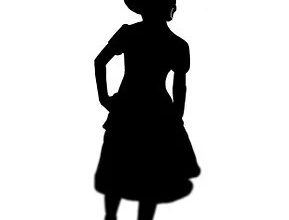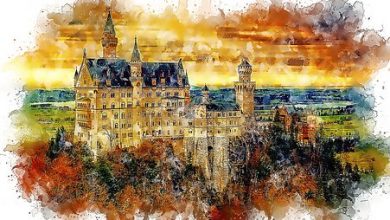This poem deals with themes of freedom and celebration. It details the joy resulting from the freedom that the people of South Africa have achieved after the period of Apartheid. The poem represents a celebration of new beginnings and new life.
There is no established rhyme scheme or structure to this poem, and thus it is written in free verse. This is not coincidental, as the free verse represents the content of the poem, that is, freedom. It is an 18-line, single stanza poem.
First Day After The War | Summary And Analysis
First Day After The War | Analysis, Lines 1-5
We heard the songs of a wedding party.
We saw a soft light
Coiling round the young blades of grass
At first we hesitated, then we saw her footprints,
Her face emerged, then her eyes of freedom!
At first, this stanza seems descriptive of a sunrise, which symbolises a new day and a new beginning. The wedding party may be the happy sounds of the birds as morning breaks, and the soft light that slowly enters the earth is the light of the sun. As the sun rises, her face is seen, and she brightens everything around.
Yet, on delving deeper, we can also see that this wedding is a metaphor for a new beginning, and symbolises the arrival of a new bride to her forever home. She is described as arriving slowly, first her aura, then her footprints, and finally her beautiful face. This bride is a representative of the freedom that the South Africans have been fighting for. This freedom gives them a new life and reinvigorates and brightens their minds.
The “young blades of grass” are the new youth that crops up within this freedom and live in liberty, able to grow freely without unnecessary regulation and restriction. What was hidden from them has shown its face to them, so at long last, freedom has emerged. It is described as emerging slowly because it took a great amount of time and fighting to achieve this freedom.
The wedding also represents the communion of two different people, and in this case, it is the communion of the two “sects” of South Africa at that time. The oppressor and the oppressed come together as one people and one country. A real-life example of this in South Africa is their national anthem. It is a hybrid of two songs, to symbolise the equality between the white people and black people of South Africa. It is a combination of the anthem of the African National Congress “Nkosi Sikelel’ iAfrika” (Lord, Bless Africa) and the national anthem during the Apartheid “Die Stem van Suid-Afrika”(The Call of South Africa). The stark differences are combined into a single compromise and guaranteed equality for all.
The continued use of “we” in the poem shows that it is a time of togetherness and that all the people have come together to celebrate and enjoy the dawn of a new era in their lives, and the lives of their descendants. Every new event that is witnessed is described as being seen by a common “we”. No individual feels the joy of freedom stronger than another, as they have all been united by their struggle, and come out victorious together.
In this stanza, Freedom is personified as a woman, as seen in “we saw her footprints, / Her face emerged, then her eyes of freedom”.
First Day After The War | Analysis, Lines 6-11
She woke us up with a smile saying,
‘What day is this that comes suddenly?’
We said, ‘It is the first day after the war’.
Then without waiting we ran to the open space
Ululating to the mountains and the pathways
Calling people from all the circles of the earth.
The people of South Africa are awoken to the realisation that they are no longer under the racist policies of the Apartheid government. This day came “suddenly” as though it was something they had wanted for a long time and had finally come upon them. The sweet result of their struggle came to them as a new dawn, and as an immediate reminder of their liberty. The “war” is the fight between the people and the government, demanding their rights to liberty and equality.
This poem is describing the first day, after a long time, wherein the people of South Africa do not need to wake up in fear, and do not need to wake up ready to dight. It is the first day after their struggle came to fruition, and they are meant to enjoy it. So, they all run out, drunk with joy. It is a time for celebration and happiness, as they relish being free from the chains that held them. They sang to everyone and everything around them, gladly publicising their freedom.
Ululation is a loud trilling howl, and it represents strong emotion. It is usually undertaken during communal ritualistic events, either on its own or part of a song. The strong emotion felt here is freedom, renewal, and the joy of new life. It is a community event as it involves the entire country, and by extension, the entire world. They call upon people from everywhere in the world to see the developments that take place and to celebrate with them.
The open space and their running to it “without waiting” is a representation of the lack of unnecessary restrictions on them from authority. The country was theirs, and they could run wherever they pleased. No place was closed off to them anymore, as segregation would be left behind. The space was open to all, and they did not have to relinquish it to someone else or wait to be allowed to go there.
In this stanza, alliteration is used in “without waiting”
First Day After The War | Analysis, Lines 12-18
We shook up the old man demanding a festival
We asked for all the first fruits of the season.
We held hands with a stranger
We shouted across the waterfalls
People came from all lands
It was the first day of peace.
We saw our Ancestors travelling tall on the horizon.
The first four lines all start with “we”, again a reminder that it was a time of unity. These four lines are all actions that they undertook, as they had the freedom to do as they like without being restricted or being seen as unlawful. They had the liberty to do anything they desired without fear of arrest or fear of death at the hands of authority.
The “old man” that was shaken up by them is the representative of all the people who were stuck in the past, still believing that previous rules of the Apartheid were intact, and lived with the acceptance of a lack of equality. This cynical old man was shaken up and the people demanded a festival and demanded that this joyful event be appropriately celebrated. That life of inequality and segregation no
The “first fruits of the season” represent the result of their fight for the freedom to have things as their own, and to enjoy the good things that life provides to them. The concept of unity is further reinforced by “we held hands with a stranger”. They celebrated with whoever was around, no longer worrying about whether the person was a friend or foe. Stranger or not, everyone revelled in the equal stature of all the people of South Africa. They shouted out their joy across waterfalls, across the country, and across the world. They no longer lived under the were tutelage of the whites in South Africa and they have the freedom to go about and do as they wish. This was what they wanted, and they fought for the opportunity to have the life that they deserved.
This new dawn brought them a feeling of peace and belonging. They had a solid root in their own land, and they had the confidence and ability to live there as they should. Their ancestors are those who lived through the suffering that the racists imposed upon them, and dreamt of better days. The ancestors are also those who sacrificed themselves in the fight for freedom, putting their lives on the line for the lives of others. These ancestors are beaming with pride, standing tall on the horizon, celebrating with the people of South Africa from afar.
In this stanza, Alliteration is used in “first fruits” and “travelling tall”.
First Day After The War | About The Poet
Mazisi Kunene was born on 12 May 1930, in South Africa.
By the age of 11, he was already writing poems and stories in Zulu and had been published in several local newspapers. He was influenced by traditional Zulu poets and most of his work was written in Zulu and later translated into English.
Kunene was an anti-apartheid activist and was exiled in 1959 during the Apartheid regime. In 1966. His work was banned by the Apartheid government, and he was the organiser of the anti-apartheid movement in Europe and South Africa. Kunene was the head of the African United Front and was closely associated with the African National Congress. He was the main representative of the ANC in Europe and the United States.
His most famous work is the poem “Emperor Shaka the Great”. He was made Africa’s poet laureate in 1993 by UNESCO and became South Africa’s first poet laureate in 2005. Some of his notable works are “Anthem of the Decades: A Zulu Epic” and “The Ancestors and the Sacred Mountain: Poems”
He died on 11 August 2006, in South Africa.



